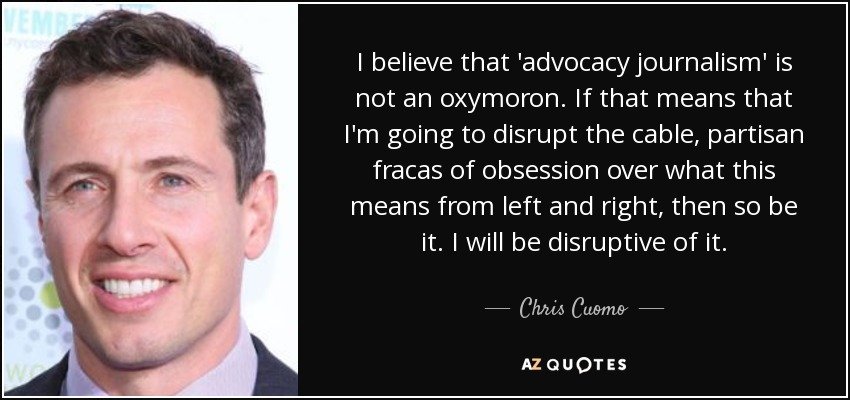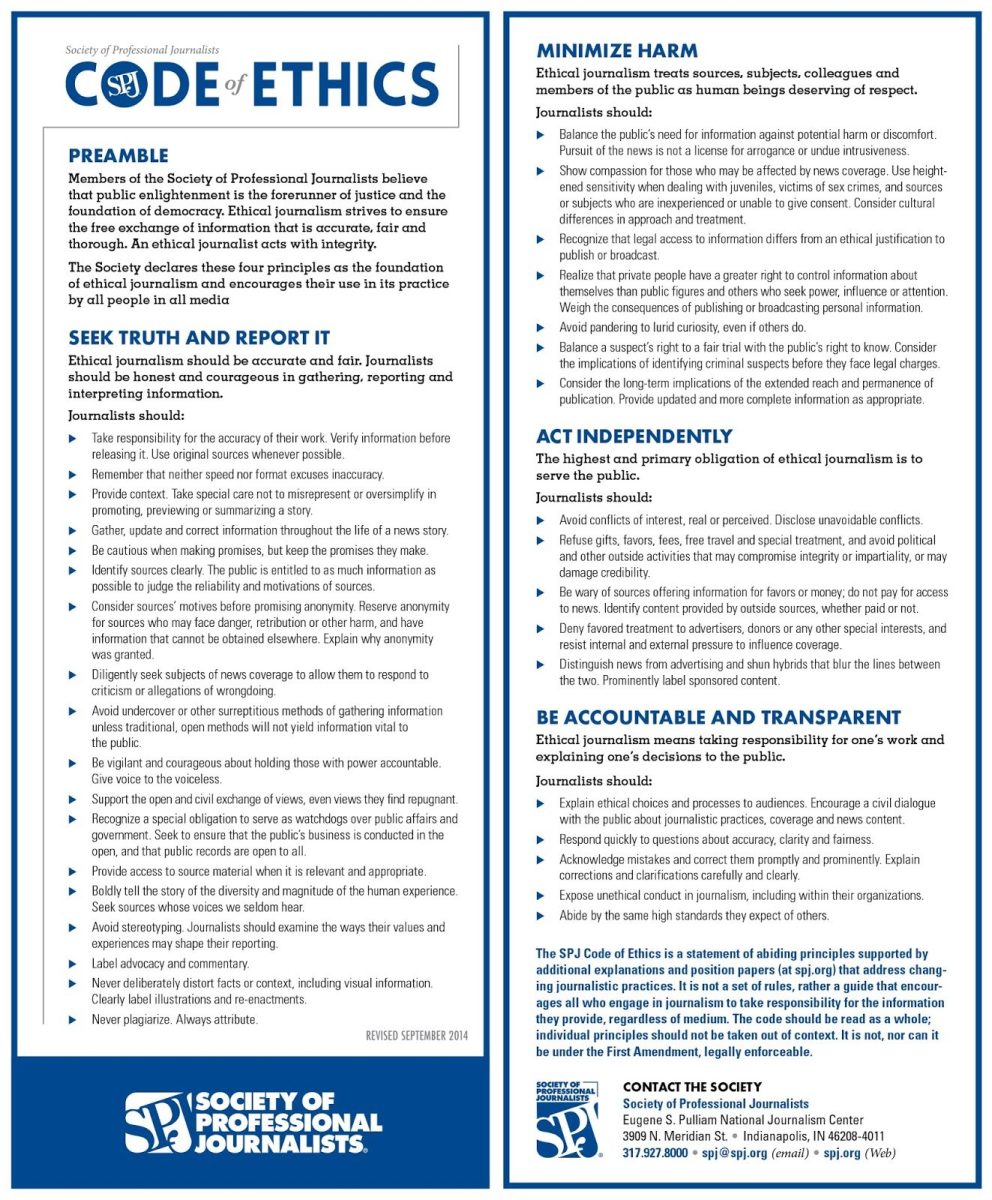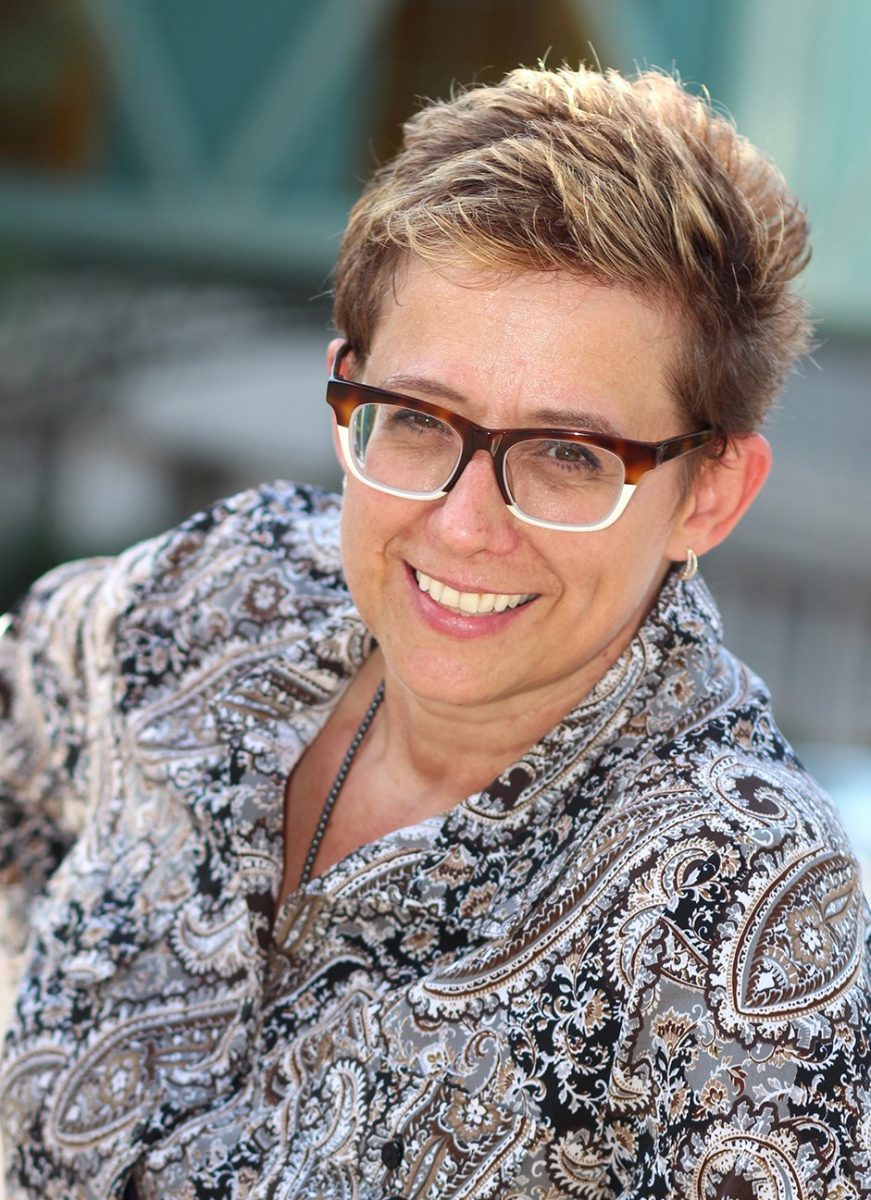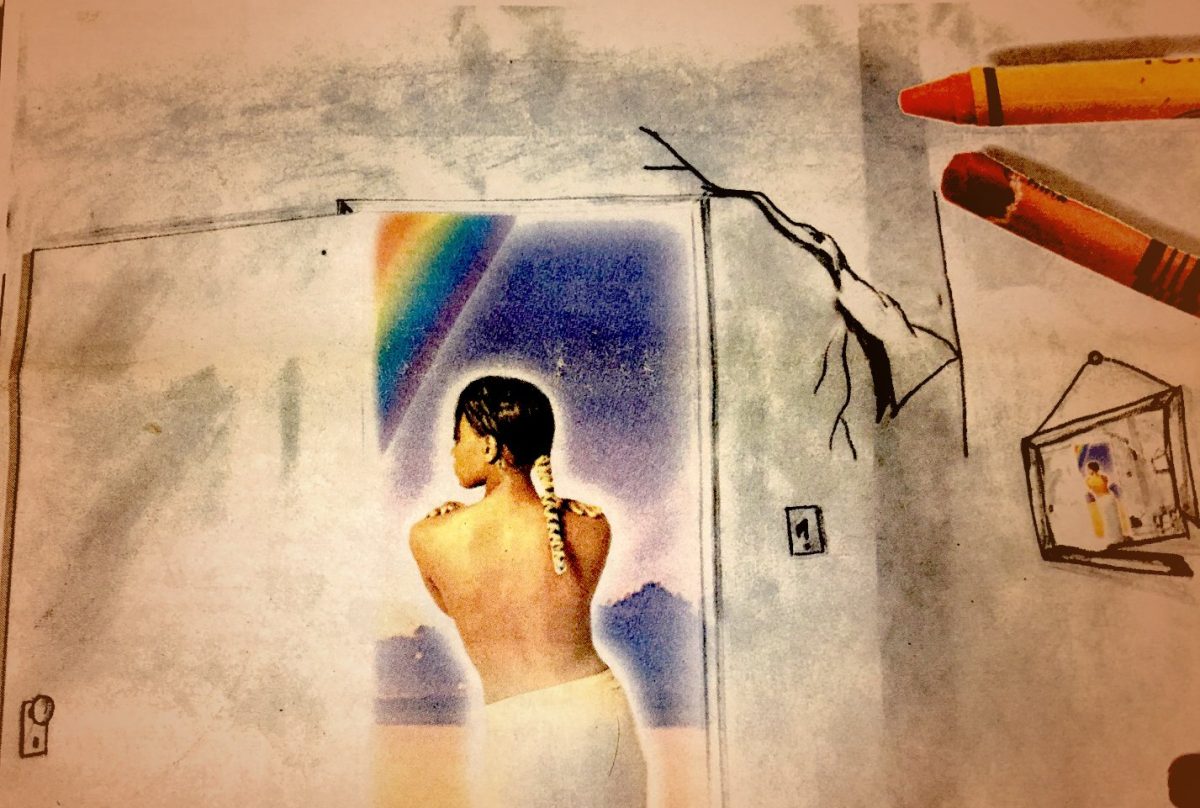“There are two forms of courage in this world,” writes author Jeff Brown. “One demands that we jump into action with our armor on. The other demands that we strip ourselves bare-naked and surrender. Bravery is a curious thing.”
Systemic racism, unequal health access, transgender violence, misogyny, climate change, animal welfare …. many battles remain to be fought, and we’ll be there. But this new feature I’m sharing today is about the latter: stripping down, revealing, and surrendering.
This is our new blog titled “TRM: Behind the Scenes.” It’s a weekly chance to let down our guard here at The Real MainStream, and share the challenges, warmths, and oddities of trying to build an LGBTQ-identified, intersectional publication in the midst of a worldwide pandemic in the heart of the Midwest.
This blog will be largely about journalism. Why? Because journalism – at a time when we need its fact focus and context more than ever – is under attack like never before. And it needs more ambassadors to help it survive.
The attacks on science, truth, and journalism are mostly coming from Trump and his conspiracy-prone followers, who are devastating enough. But sadly, the devaluation of journalism is bigger and broader than that, and a lot of it comes, often unknowingly, from within the groups that need it the most. More on that below ….
We’re “doing journalism” through The Real MainStream in a new and different way called “advocacy journalism.” This concept actually horrifies some old-time journalists — of which I am one, I confess! I’m one of those journalists who remembers gathering ALL of your information by phone calls, pounding the pavement, or digging through the library or morgue.
That “pre-Google” era was also when we all learned the traditional “he said/she said” model of reporting. Back then, one measure of a good news story was how “equally” you could present two different sides, how much you could purge and/or hide any trace of yourself and your own beliefs from an article.
Not any more: two sides are no longer enough to tell the whole story. And we now recognize almost universally that striving to be objective actually means cutting out everyone else’s viewpoint but your own.
As if taking on the hotly-debated field of “advocacy journalism” isn’t complicated enough… The Real MainStream is “doing journalism” to serve an audience that hasn’t always been treated right or well by media. Or, who are resentful of media simply because it used to, and often still does, look right past them.
I’m talking about LGBTQ people. Black people. Brown people. Indigenous people. People of Color. Women. Seniors. People with conditions or disease. Pretty much anyone who hasn’t been able to exploit their way to the top of the capitalist, “cult of personality”-influenced system that has left us with wealthy cis straight white men disproportionately in charge of almost everything.
The hurt that many have suffered because of the media is real. The alienation is understandable. In big cities and small ones, among the young and the old, the wealthy and the poor, you’re more likely to have been hurt or excluded by the media if you’re a woman, LGBTQ, Black or Brown.
But journalism, when done right, isn’t painful or hurtful. It’s amazing.
My very earliest experience with journalism was to visit an HIV/AIDS support group at age 17. This was in 1985, when there were still dentists and doctors who refused to treat patients with HIV/AIDS — when like today, too many people were dying too quickly.
I went to that meeting as a confused teenager scared of catching the disease and fearful of those who had it. I left that meeting newly enlightened about my own unjustified fears, drawn to rather than repelled by those who attended, and with a hunger to find more such lightbulbs to turn on for myself and others.
My second earliest experience with journalism was to report on the amazing achievements of the female super-athletes that happened to attend my high school. A decade before Zena, long before the WNBA, waaaay before Megan Rapino’s unabashedly confident on-the-field stance, I had the privilege of witnessing, and documenting, the legendary Jenni Fitzgerald and several other female athletes who dominated Iowa’s attention through their sheer physical prowess and natural confidence.
These are just the earliest of hundreds of experiences that showed me the power of journalism to inspire, change lives, empower causes, redefine success, and inform movements.
They enabled me to build a long-term love affair with journalism. But not everyone has had the privilege, I’ve recently been reminded anew. Being a woman and a lesbian can be a burden for sure, but because I’m white, I enjoyed more opportunities and support along my journey than many others. I’ve had the privilege of seeing the world as an endless pursuit of truth beyond “sides,” and a drive to get more words out there among more people.
Others haven’t had that privilege. They weren’t given the chance to have mentors; their families couldn’t buy the Sunday paper every week or couldn’t subscribe to cable news. Or maybe, a TV station or newspaper at one point wrote or said something that was hurtful to their friend or family member or neighborhood or race. Or someone wrote an editorial that angered someone, or used a prejudiced term, and the PTSD of that experience means all media are suspect.
That’s why we can’t just do journalism. We need to do “advocacy journalism.” In my book, this evolution is an essential part of finally dislodging systemic racism and misogyny. Freeing ourselves to be honest about our perspective, yet still honoring the essence of truth and transparency, is the way to cover the world today.
The first people to advocate this new concept were, of course, youth. The Parkland kids in Florida, who advocated for gun control after a mass shooting claimed many of their classmates, began using the term and triggered a mini-debate about it.

Since then, there’s been more of a push to let principles, and empathy, become an essential part of journalism. Trump has helped move this discussion along; reporters have learned the hard way that applying the old-fashioned “they said/they said” model of reporting is akin to becoming complicit in spreading Trump’s untruths.
It’s all about transparency. Dropping that robe. Not feigning some kind of unattainable objectivity. So here’s a reminder of our full disclosure: We are doing advocacy journalism devoted to inspiring useful discussion and historic action that leads to a more compassionate, inclusive Iowa and Illinois that do better for everyone and especially marginalized communities. That’s our mission.
We, as marginalized people, need journalism today, the best parts of it. We need the hunger for truth beyond allegiances, the drive to know more and understand better, and the respect for all perspectives that are the true foundations of good journalism.
To wrap up this first blog, here’s a quick two-section rundown of how you can expect our advocacy journalism to continue manifesting. We’ll start with what you should NOT expect:
- Any racist, misogynistic, homophobic, transphobic, or blaming verbiage. This is our clear line as we promote greater openness; our advocacy role means this is a safe space for marginalized communities.
- That you’ll agree with everything you read here. You won’t. This is a tough one for progressives. Somehow we’ve lost our grasp of the art of letting our beliefs be challenged, and of disagreeing. This will be a place to practice those things.
- To find broad labels or routine use of hidden slurs. You won’t. For instance, we don’t use the word “addict.” And we won’t be calling police officers “pigs.”
- Any effort to fill the roles already being filled so well by other local media. We won’t try to duplicate the blow-by-blow reporting of Little Village, or the investigative reporting of Iowa Starting Line. Or the daily news “big-picture” from daily newspapers. Or the all-LGBTQ angle of Windy City Times. Our role and goal, instead, is to amplify a focus and understanding of intersectionality, and the principles that grow out from that.
- Perfection. It’s not possible. We’ll run corrections when we’re wrong. We’ll occasionally be behind. We’ll occasionally use the wrong term, as the linguistic landscape keeps changing to adapt to diversity. We’ll keep on learning and evolving.
- Toxic positivity. Whether it applies to people, movements, organizations, bars, whatever, you won’t find it here. We don’t do ourselves as marginalized people any favors by being blindly supportive of ourselves (or blindly against anything or anyone). We all need to be bare-naked, and that may not always mean praise, support or agreement. And that’s …. Ok.
What you CAN expect:
- Clear distinction between opinion/commentary and reporting. They are not interchangeable, and they’re both equally valuable.
- Valid sourcing. Thinking you know something is a lot different than it being true – and even in a world where two sides are not enough, truth does still exist.
- An extra effort for the articles and columns we write to reflect intersectionality whenever possible. That may mean an extra layer of reporting to know how Blacks are affected by a topic near and dear to LGBTQ people, or vice versa. Or seeking out an image that includes more than just white people.
- That truth and transparency will always trump business influence, celebrity, personal relationships, affiliations, identities, or networking. The “no-spin zone” can, indeed, exist while doing advocacy journalism. This doesn’t mean friendships and affiliations and business bonds don’t matter; they do. In fact, good journalism knows when NOT to publish, as well as when to put it out there. It’s all about the greater good, determined by a time-honored system built on respect, discretion and compassion.
- To be challenged, and pressed. Not because this publication or any of those involved with it know it all, but because that’s what happens when journalism happens. Truth and transparency expand understanding, and that comes in the form of tension sometimes.
- A diversity that doesn’t automatically exclude the traditional. As an example, our spirituality section has a LOT of pagan and Wiccan articles! But also lots of Judeo-Christian articles. And even though we exist to break down patriarchy and systemic racism, white guys can still be part of the team.

I want you to know we are also stepping up our game. This whole COVID-19 transformation continues to lead us gradually to what we should have been doing anyway. Some of those things, beyond going all-online with a much better website, include:
- a Self-Publish feature where you can submit your own artwork, poetry and essays for publication
- A new Event Listings feature where you can submit upcoming events to share.
- Classified Ads that we hope will primarily bolster employment opportunities for marginalized communities, and also increase pet adoption throughout Iowa and Illinois. We also hope this new Classifieds section will become a reliable source of LGBTQ-friendly and Black, Brown, and POC-owned housing, services and products, plus personals for dating, friendship or community group growth.
Thank you for reading this introductory blog! I’m looking forward to sharing in a less formal fashion every week here, to help you feel what I feel: that journalism is a continuous source of hope and community. I hope this blog helps us all feel more united and empowered, in this little Midwestern corner of this fast-changing world, to face its new and urgent challenges with this great tool we call journalism.



